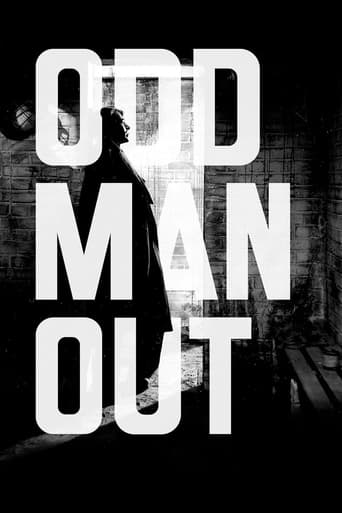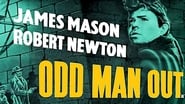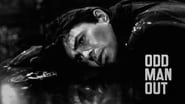christopher-underwood
Ignoring the rather unlikely IRA meeting over tea and biscuits at Granny's house prior to a planned armed raid, the first half of this film is great. The pace is furious, the exchanges between the men and women believable and the dark and dismal Belfast streets look amazing. Almost noir like as the film progresses with tension and passions high, we are swept along as road vehicles swerve and skid and 'real' children play in the street and plead for 'pennies' or 'fags'. Mason is splendid and he has good support with spirited direction and a cinematographer enjoying himself. And then it stops. I imagine just so we can get our breath back and await the next surge but I am starting to wonder just where the film can go. And it goes nowhere. It slips into silliness and then into farce - when Robert Newton gives us his broad and knowing sea captain's wink you know its all over but its a shame and the final dip into sentimentality, telegraphed at the very start of the film, is, well the opposite of 'icing on the cake'.
James Hitchcock
This is the first of three films noirs, all containing the word "man" in their title, made by Carol Reed during the forties and fifties; the others are "The Third Man" and "The Man Between". It is the only one of the trilogy to be set in the UK, the other two taking place in continental Europe. The action takes place in an unnamed "Northern Irish city" (for which read Belfast) and features an unnamed "illegal organisation" (for which read the IRA). We may think of Northern Ireland's "Troubles" as something dating only from the late sixties, but the province was never entirely free of political violence after partition in the early twenties. It was a brave move to make a film about this subject in 1947, especially one which does not take sides politically, as the IRA were cordially loathed in Britain, not only for their terrorist activities but also for their openly pro-Nazi stance during the recent war.Johnny McQueen is a leading member of the organisation who has recently escaped from prison. He and his cell are ordered to rob a factory to obtain funds. The raid, however, is bungled and a cashier is killed and Johnny injured. He is forced to go on the run, while the police organise a manhunt. Various people, including members of his own organisation and his girlfriend Kathleen are also trying to find him, for various reasons.James Mason (who also starred in "The Man Between") is said to have regarded this as his best film, and others have held it in high esteem, Roman Polanski going so far as to call it his favourite film. It certainly has its virtues, but I have always felt that it also has its faults and I have never rated it as highly as "The Man Between" or Reed's masterpiece, "The Third Man".Most of these faults come in the second half of the film in which a number of people are searching for Johnny, and not always for the obvious reasons. Kathleen is looking for him because she loves him. A priest, Father Tom, wants to save his soul. A painter, Lukey, wants to paint him because of what he "sees in his eyes". Lukey's friend, Shell, is hoping for a financial reward, either from the authorities or from the organisation, for information about Johnny's whereabouts. Two old ladies take pity on him, but throw him out of their house when they discover who he is and what he has done, although they do not hand him over to the police. A barman takes a similar attitude. From around the halfway mark onwards Johnny, the dominant figure in the first half, fades out of the film, becoming a passive symbol- a symbol of whatever the other characters want to make of him- rather than an active participant in the drama. As a result, the film seems structurally unbalanced, a union of two halves which do not fit neatly together.Moreover, the acting is variable in quality. Robert Newton plays Lukey as the standard caricature of the artist as an eccentric, possibly mad, Bohemian starving in a garret. F. J. McCormick plays Shell as the standard caricature of the stage Irishman, full of the blarney and speaking little that makes any sense. And, like most stage Irishman, he has a Southern Irish accent. In fact, most of the cast sound as if they come from either England or Southern Ireland. Virtually nobody manages - or even attempts – a genuine Ulster accent.On a more positive note, some of the cast are better; I am thinking particularly of Kathleen Ryan as the faithful Kathleen and Denis O'Dea as a sympathetic policeman. The cinematography is excellent. Reed is able to conjure up a vision of Belfast- many scenes were shot on location in the city- as memorable as the visions of New York or Los Angeles conjured up by the great masters of American noir. We see the city in all its moods- the robbery takes place in bright sunlight, but later scenes were shot in shrouding fog or driving rain. The closing scene takes place in a snowstorm. There is also a fine dramatic musical score from William Alwyn.When I said that the film does not take sides politically, I meant that it is neutral on the question of whether Northern Ireland should remain part of the UK or be united with the Irish Free State (as it was in 1947). On the question of political violence I think it does take sides. Even early in the film Johnny finds himself at odds with his organisation- a possible explanation of the title- because he has come to believe that non-violent political action might achieve more than armed struggle. Although Johnny tends to fade out in the middle of the film, he returns to prominence at the end. He knows he is dying; if he does not receive medical treatment his wounds are likely to prove fatal, but if he goes to the hospital he will be arrested and hanged for the murder of the cashier.He begins to quote from that famous passage in St Paul's First Epistle to the Corinthians, including the words "Though I speak with the tongues of men and of angels, and have not charity, I am become as sounding brass, or a tinkling cymbal". He may be delirious, but in his delirium he gives voice to an idea which he has instinctively known, and has been struggling to express, since the beginning of the film, namely that the rhetoric of men of violence, including members of his own organisation, who lack charity in their hearts is hollow and worthless, of no more significance than a tinkling cymbal. Although this is not, in my view, Mason's finest film, it is nevertheless a fine, highly expressive, individual performance. 7/10
charlywiles
After a daring Belfast bank robbery, a wounded Irish nationalist leader becomes the object of an intense police manhunt across the city. This is one of the great director Carol Reed's very best films and a landmark in the suspense/crime genre. It is beautifully filmed in black and white with brilliant use of light and shadow, expert camera movement and inventive visual effects. Virtually every shot is a work of art. The cast, headed by James Mason as the IRA leader, is magnificent. Mason gives one of the best performances in his legendary career and he considered this his favorite role. Kathleen Ryan, who would do anything for the man she loves, is also memorable as Mason's girl and Robert Newton is another standout (his scenes in the pub where Mason is being hidden are among the highlights of the film). Every part, large and small, is perfectly played, with most of the supporting players, including rebel gang members Cyril Cusack and Dan O'Herlihy, recruited from Dublin's legendary Abbey Theatre. Reed's crisp direction, the terrific script and outstanding editing help to build the tension all the way to the incredible climax . It is one of the masterpieces of British cinema. The picture was the very first film to win the BAFTA Award as the Best British Film of the Year.
Leofwine_draca
ODD MAN OUT is a well-remembered Carol Reed film from 1947 with a North Irish backdrop. The film it most reminded me of was the recent thriller '71 in which a British soldier was trapped in a hostile city and fighting for his life. This time around, an utterly sympathetic James Mason is a wounded IRA man struggling to hide from the authorities after a bodged bank robbery at the film's outset.That ODD MAN OUT is a well shot film is obvious. It brings to life the troubles in Northern Ireland in a vivid and heartfelt way without ever preaching or taking sides. Real, fully-rounded characters are what this film is about and it works well because it. A large supporting cast allows Reed to explore various facets of the human condition and the foibles that affect mankind. Robert Newton in particular stands out as the larger-than-life painter who gets involved.The film really belongs to Mason, who gives an impeccable performance even though he doesn't get a great amount of screen time. I was expecting this to be more of a suspense thriller when in reality it's something of a character drama, but the cinematography is very fine and the film as a whole thoroughly involving due to the aforementioned strong characterisation.



